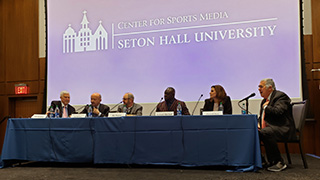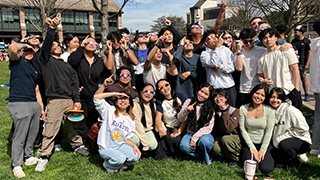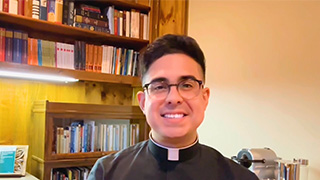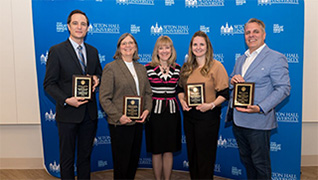Civil Rights History: New Interpretations
Thursday, March 11, 2021
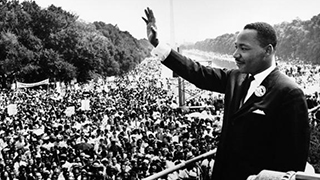
The panel consisted of Dr. Vanessa May (History Department), Dr. Larry Greene (History Department), Dr. Kelly Harris (African Studies Program), Dr. Matthew Pressman (School of Communication and the Arts), and Rev. Dr. Pritchett (Senior Advisor to the Provost for Diversity, Equity and Inclusion). The panel attempted to fill the gap in knowledge by devoting their afternoon to planting seeds of wisdom from critical texts that encourage readers to expand their understanding of the movement beyond traditional boundaries.
The Civil Rights Movement is often associated with combatting voter suppression and the disenfranchisement of Black people in the workplace and society. Dr. May's extensive research and book recommendations centered on women, specifically Black women, in the movement. A poignant statement made by Dr. May was, "A true accounting of women's experiences and a true accounting of how gender and race have shaped the past require us to change the story itself, so it's a whole new recipe – not just adding women and stirring." As attendees learned, women often receive less recognition in traditional Civil Rights accounts, which is detrimental for women's progress. For women, fighting for civil rights was synonymous with the fight for human rights.
Dr. Larry Greene and Dr. Kelly Harris jointly tackled the significant events such as widespread Black voter suppression and the details behind the first March on Washington organized by A. Phillip Randolph in the 1910s. Dr. Greene likened the blatant rejection of Black voters at the polling stations to ethnic cleansing by way of various discriminatory methods. Moreover, Dr. Greene discussed the anti-lynching led by Ida B. Wells Barnett. Black individuals accused of crimes were targeted and violently attacked, thus stripping them of their Sixth and Fourteenth Amendments rights. In the post-World War II era, civil rights became inextricably connected to human rights. Dr. Harris presented exciting information about William Patterson, a political activist and member of the Civil Rights Congress from Patterson's memoir. It cannot be stressed enough that when studying the Civil Rights Movement, reading memoirs and diaries of individuals offers a perspective that present-day biographers and researchers cannot convey.
Newspapers from the period are worth studying, which can be found in a digitized format in Seton Hall's Walsh Library. Dr. Matthew Pressman's expertise allowed him to study the Civil Rights Movement through the lens of journalism, which set him apart from his fellow panelists. Dr. Pressman stated, "I would also point faculty members to some of the terrific library resources. We have digitized newspapers and other publications, but these newspapers from the start really played a central role in advocating for equal rights and in bringing these issues of discrimination and unequal treatment to the forefront." Rev. Dr. Pritchett closed out this stimulating conversation by referring to recent events that shook the United States. Dr. Pritchett stated, "Five weeks ago in Washington D.C. we saw things that many people may have had a hard time comprehending (while watching) on their T.V. screens, but many of us knew that we live with a clear and endangered presence. We have been doing that for hundreds of years, so that when we understand the struggle, it's not limited to the period of the early 20th century. This literally will be a struggle that is 500 years old." Bearing this in mind, we must educate ourselves and devote time to understanding the domestic conflict surrounding the Civil Rights Movement and how that translates into contemporary struggles.
The recording of this event can be accessed on the Seton Hall Center for Faculty Development blog.
Categories: Arts and Culture, Nation and World

